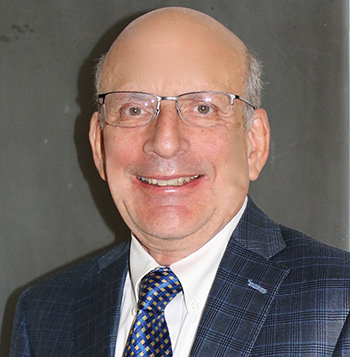By: Rev. Dr. Gerald DeSobe
How do we deal with level of stress in our lives? In addition to well-known ways to deal with stress, such as exercising, meditation, prayer, etc., I believe there are certain ways of thinking that clergy particularly fall victim to, and changing that thinking could reduce the stress we experience.
The first way we unwittingly add to our stress is by having “catastrophic expectations.” We assume the worst possible outcome will happen and then we live as though it already has happened.
An example of this process is when an especially cantankerous parishioner is upset with us for some mistake we may have made and we imagine this parishioner being able to convince the entire congregation that we are a problem. Then we can take our catastrophic expectations to the next level and imagine the SPRC becoming upset with us and then we become a “must move” and we end up being appointed to the smallest church in the Conference (where, as a friend of mine use to say, “they have to send you sunshine by mail!”) This imagined catastrophe comes from one (usually unhappy parishioner) and we live as though our expectations are the reality.
We can resist this catastrophic thinking and the stress that comes with it by bringing reality to bear on the circumstances with which we are confronted. So, in this circumstance, it is helpful to remind ourselves there are many people in the congregation that love us, church attendance and finances are good, etc. and prevent ourselves from feeling anxious about events that likely will never, ever happen.
The second way we unwittingly add to our stress is “negative self-talk.” With little evidence we say to ourselves, “this sermon isn’t any good” or “I messed up at the last administrative council meeting” or even things like “I’m not a good pastor” or “I can’t get this church to move in the direction it needs to go” or “they liked the previous pastor more than me.” More helpful self-talk would be “this sermon needs a little work,” “I will prepare for potential conflict at the next administrative council meeting,” or “the way I can develop my pastoral skills is…” Positive self-talk helps us feel in control of our lives rather than feeling helpless and discouraged.
By avoiding catastrophic expectations and by focusing on positive self-talk we will reduce the amount of self-imposed unnecessary stress we have to deal with and make a bit easier the challenging role of being a UMC clergy person.

Dr. Gerald DeSobe is a Licensed Psychologist, Licensed Professional Counselor Supervisor and a United Methodist minister with over 30 years’ experience in counseling and psychological testing. DeSobe has a special interest in working with professionals, business leaders, and their families in high stress positions
Foundations of Faith provides advice from Texas church pastors and its leadership on how to lead effectively. This blog is brought to you by the Communications Department of the Texas Annual Conference of the United Methodist Church. To be considered as a subject matter expert, contact Shannon W. Martin, Director of Communication at

